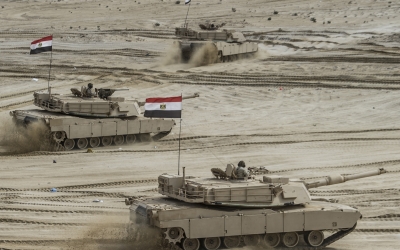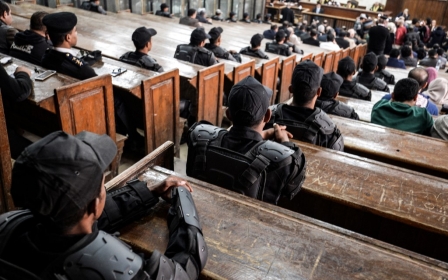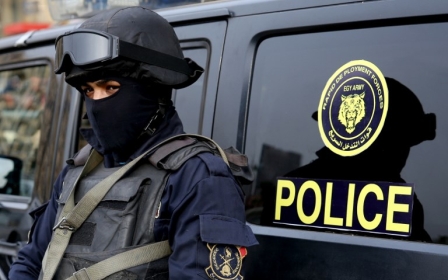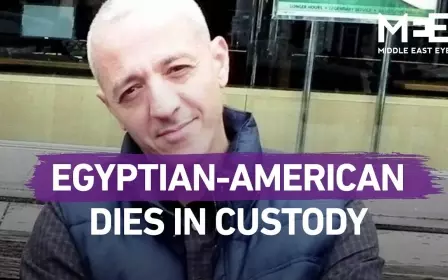Moustafa Kassem's death was due to 'failures by the Trump administration'
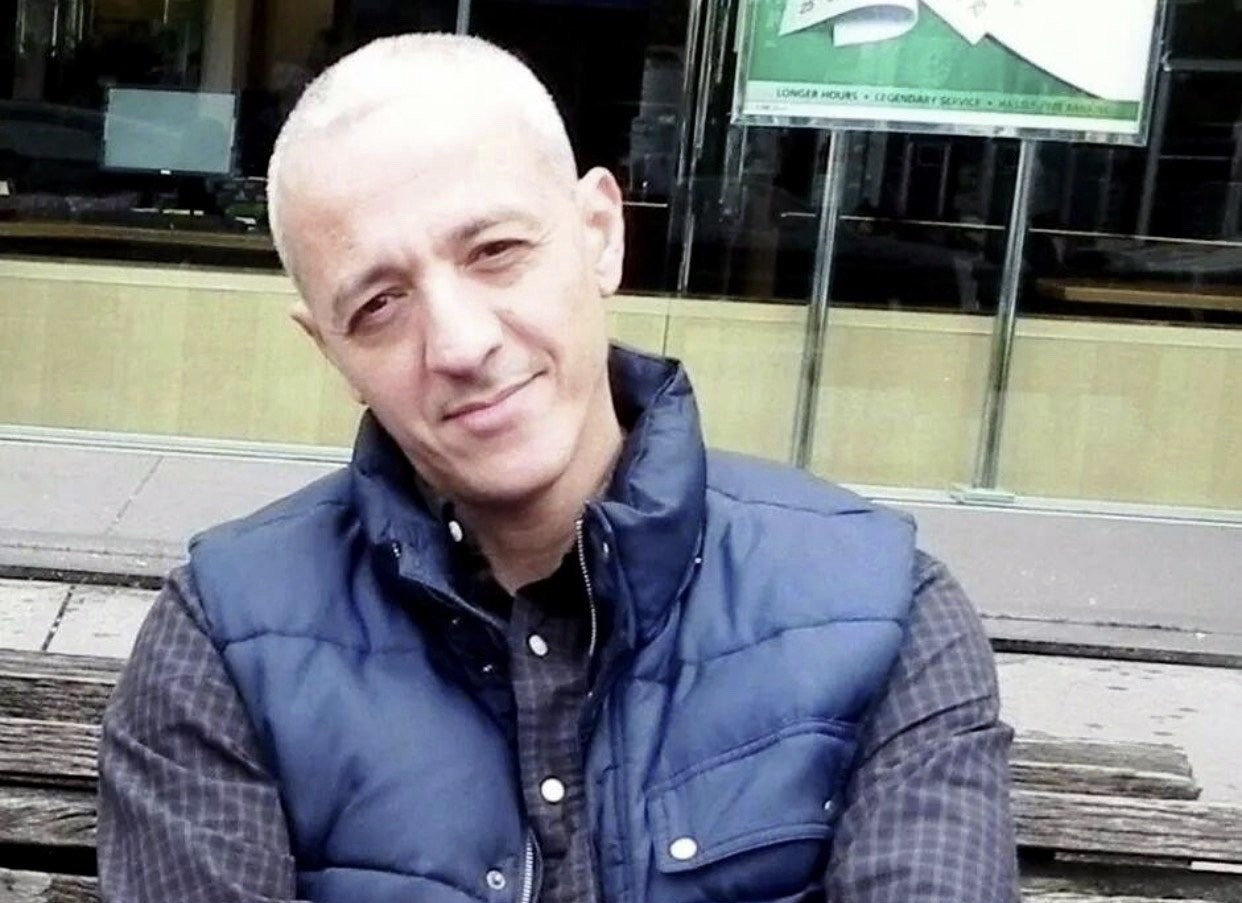
Former Egyptian prisoners and senior US Democrats called on the Trump administration to do more to free Americans jailed in Egypt, following the death of a US citizen in a Cairo prison.
At a news conference on Capitol Hill, Mohamed Soltan, a former Egyptian prisoner, called for the US to use its leverage over Egypt and pressure the government of President Abdel Fattah el-Sisi into releasing six Americans currently detained by Cairo.
"If there is no repercussion for what happened with Moustafa Kassem, you can only imagine [what the fate is for the] tens of thousands of Egyptians that have no powerful government to advocate on their behalf," he said at Wednesday's event organised by the non-profit Project On Middle East Democracy.
"It sets the tone for how much Egypt can get away with," Soltan added.
Kassem, a dual Egyptian-American citizen, was arrested in Cairo in August 2013 after a military coup that brought Sisi to power.
New MEE newsletter: Jerusalem Dispatch
Sign up to get the latest insights and analysis on Israel-Palestine, alongside Turkey Unpacked and other MEE newsletters
'I'm a former prosecutor. I would call this death a homicide,'
- Senator Patrick Leahy
Kassem said he had been wrongfully detained by Egyptian soldiers when he happened to be at a shopping centre near Cairo's Rabaa al-Adawiya square.
After spending more than five years in pretrial detention, he was later sentenced to 15 years in jail in a mass trial involving hundreds of defendants.
He wrote letters to both US President Donald Trump and Vice President Mike Pence asking them to secure his freedom, but died on Monday after a series of hunger strikes.
Soltan, who was imprisoned for 22 months and whose sentence briefly overlapped with Kassem's, shared a story of how Kassem helped in his own release.
Soltan had reportedly bribed his way to Kassem's prison ward in order to obtain his signature for a letter that would be sent to then-President Barack Obama.
That letter helped secure his freedom in May 2015.
Soltan described Kassem as a soft-spoken individual who always had a large smile on his face.
'Forgotten'
Aya Hijazi, who spent three years in an Egyptian prison before being released, said that even though he was an American, "Kassem was forgotten" by the US.
"I don't want to blame one administration or another, especially since the question is bigger than one administration or party," Hijazi said at the news conference.
"It's about Americans' lives and unconditional support and appeasement of Egyptian dictators."
Soltan said after his release, his organisation "did everything possible" to secure Kassem from prison.
"There was engagement from the previous administration, this administration, but it just wasn't enough," he said.
After Kassem's death, the Trump administration admitted that his death was "avoidable".
"His death in custody was needless, tragic and avoidable," Assistant Secretary for Near Eastern Affairs David Schenker said at a State Department briefing.
Kassem's death was 'homicide'
US senators on Wednesday went further, calling the death a "killing" and a "homicide," before laying blame on the Trump administration for not doing enough.
"I'm a former prosecutor. I would call this death a homicide," Senator Patrick Leahy said at the news conference.
Senator Chris Van Hollen called it a "killing" and said the death was due to "failures by the Trump administration to apply the necessary pressure to secure his release and the release of other Americans detained in Egypt."
'It sets the tone for how much Egypt can get away with'
- Mohamed Soltan, former prisoner in Egypt
Since 2013, Sisi's government has overseen a broad crackdown on dissent, with as many as 60,000 people jailed.
Still, Trump has repeatedly heaped praise on the Egyptian leader, even calling him "my favourite dictator".
"This killing should serve as a wake-up call," Van Hollen added.
Connecticut Senator Chris Murphy pointed to the halting of US aid to Egypt as a way for the Trump administration to hold Cairo accountable.
Egypt is the second-biggest recipient of US military aid after Israel, receiving $1.3bn every year.
While the US has cut aid to Egypt in the past, citing human rights concerns, the Trump administration has waived human rights conditions that have applied to some $300m in aid.
Middle East Eye delivers independent and unrivalled coverage and analysis of the Middle East, North Africa and beyond. To learn more about republishing this content and the associated fees, please fill out this form. More about MEE can be found here.


